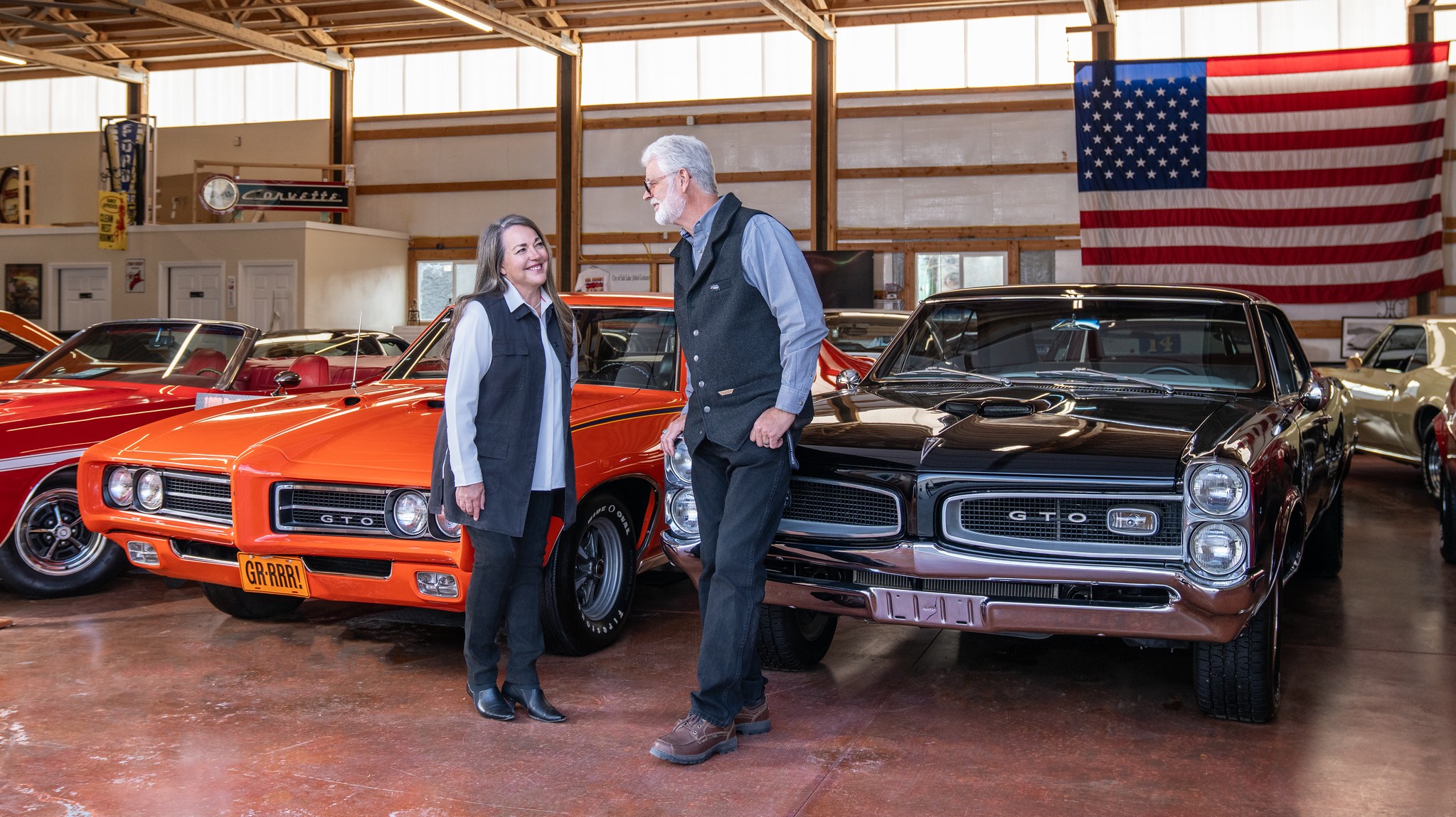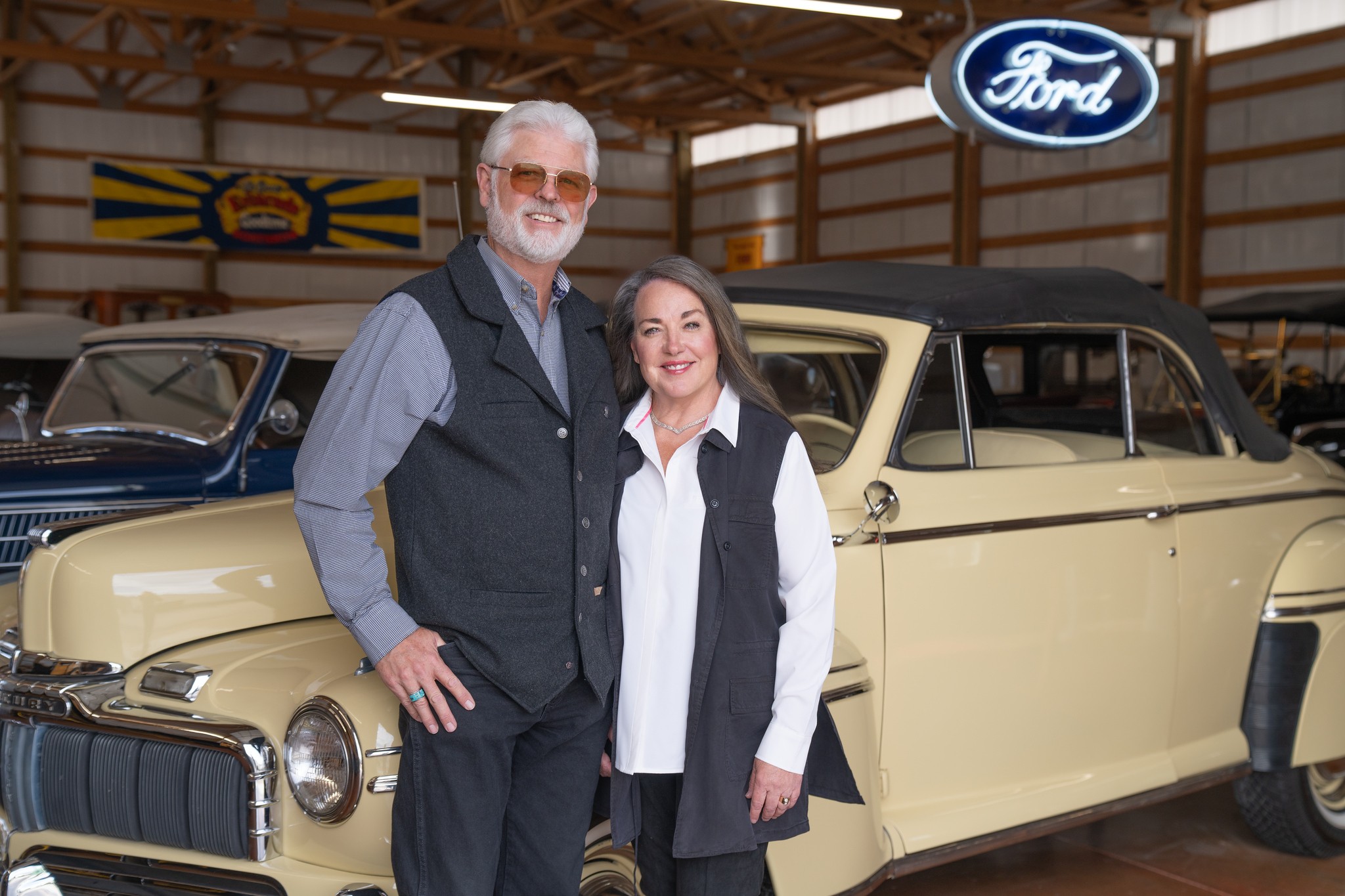Alright – so today we’ve got the honor of introducing you to Russell Baker. We think you’ll enjoy our conversation, we’ve shared it below.
Hi Russell, thanks for joining us today. Let’s kick things off with talking about how you serve the underserved, because in our view this is one of the most important things the small business community does for society – by serving those who the giant corporations ignore, small business helps create a more inclusive and just world for all of us.
It is our mission to serve the public and to keep history alive by preserving and presenting history in an educational and entertaining manner. We do this through our Museum and through our community outreach; working with and supporting other museums, our schools and community organizations.
We have built two sound stages on our Wallsburg facility where we host Music Festivals during the summer. Our Music Festivals are both non-profit events which benefit the charity of our choice. Last year and the year before our Boomerfest Festival which held each August, benefitted our veterans through Continue Mission, a local Veteran support organization. In 2022, our Festival benefitted the Ronald McDonald House. We have also built a state-of-the art R,C, (remote control) Sky Park on our facility to serve the public.

Great, appreciate you sharing that with us. Before we ask you to share more of your insights, can you take a moment to introduce yourself and how you got to where you are today to our readers.
I have spent over forty years in the business industry as an entrepreneur, building businesses and corporations from the ground up. I have spent a great deal of my time in the environmental industry serving major clients across the nation. As I began my career in the environmental industry, I had one simple goal in mind. To leave a cleaner, healthier environment for future generations.
During my career/travels, it afforded me the opportunity to visit many museums, historical sites and spend time with fellow collectors. From childhood, history has always been and continues to be very important to me. I began collecting in my youth and continue to this day. A major focus for me was of course American History. I was drawn to and fascinated with the history of transportation and how it truly effects all facets of our lives. Throughout my business career and in collecting Americana and transportation items, such as automobiles, motorcycles, and petroleum related items; I have had the great fortune to meet and work with many dedicated collectors and organizations. I have always considered myself to be fortunate throughout my career in industry and as a collector and curator to have many mentors in my life. Now I take great pleasure in being a mentor to others.
I enjoy giving tours and lectures on early American automotive history. Here is a significant and confounding historical fact. The automobile was invented significantly earlier than gasoline was developed. When I present these facts, I will get that confused look from the audience. The early automobiles with an internal combustion engine actually ran on cleaning solvent long before gasoline was available.

Let’s talk about resilience next – do you have a story you can share with us?
Throughout my career, I had to reinvent myself as I moved forward. This is a necessary process in building anyone’s career. All facets of life, business and industry are constantly evolving and we must be willing to evolve with it in order to to be successful. As I look back on my business accomplishments, I was fortunate to have built several businesses and two major corporations. The last corporation, which I retired from in 2018, we made the decision to sell the corporation to our management team who helped build the company. I should also state for the record, that I had a business partner which together we built a major a Utah corporation. My business partner retired in 2007 and I retired in 2018 and continue as an advisor for the company. I take great pride in the fact that the company goes on to this day employing approximately 130 people and is considered a leading corporation in our industry. But enough about me, I would like to shift the focus on the Foundation and the services that we provide.
In this chapter of my career, I have enjoyed being a part of The Richard W. Erickson Foundation and the Richard Erickson Antique and Classic Power Museum for the past twenty-three years. Working with the public, our youth, fellow collectors and other museums has been and continues to be a rewarding and fulfilling experience.

Learning and unlearning are both critical parts of growth – can you share a story of a time when you had to unlearn a lesson?
As I previously stated, I have been a collector for over fifty years. With a large collection of antique and classic cars, motorcycles and Americana. During my travels, my wife and I would attend major events and auctions. At these events we had the opportunity of getting to know Richard Erickson and developed a friendship. Dick invited me to participate and help him with his museum in Wallsburg, Utah. Dick and I shared a similar passion for preserving the history of these automobiles, motorcycles, etc. I have been involved the Richard Erickson Antique and Power Museum for now going on twenty-three years, with most of this time serving as curator. Dick and I would travel the nation, often in different directions, acquiring items with historic significance for the museum.
For me, one of the major components of acquiring an item for the museum or for our own collection, is in fact the back-story. Any item, be it a car, truck, motorcycle or a tractor, has its own history which needs to be preserved and told. What I would seek out is the story behind the item. The story of who owned it, where it came from, its journey through its life and then blending the story into the history of the item and sharing not only the historical facts of the item but also the story behind the item.
To answer your specific question about unlearning a lesson; I think the best way to answer this is that throughout our lives we will inevitably make mistakes. Anyone who is not making mistakes in their lives and in their occupations are simply not trying hard enough and pushing themselves, mistakes are how we learn. The key component here is the fact that we take the time to evaluate why it did not work out and what would have been a better path or direction, this is the learning process. Again, the key component here is not to repeat our mistakes. Thomas Edison was once asked by a reporter “How does it feel to fail 1000 times while trying to invent a light bulb?” His answer was simple and clear, “I have not failed 1000 times, I have found 1000 ways that won’t work.” This is an excellent example of how we learn from our failures.
We invite the public to come enjoy the history that we present at our museum and enjoy our events at our Wallsburg facility.
Contact Info:
- Website: https://www.richardericksonfoundation.org
- Instagram: @the_erickson_ranch
- Facebook: Richard Erickson Power Show and Museum

Image Credits
Park City Photographers


